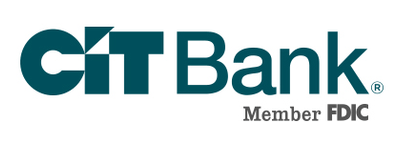Our evaluations and opinions are not influenced by our advertising relationships, but we may earn a commission from our partners’ links. This content is created independently from TIME’s editorial staff. Learn more about it.
After the excitement of having your offer on a new home accepted comes the work needed to close on it—and all the new terminology you have to learn. Even if you’re more than a little tired from all that searching, you’ll need to get more done to make sure everything goes smoothly at that all-important closing. Getting cash to close is a key task.
What is cash to close?
Cash to close covers the costs and fees you need to pay when you purchase a home, many of which are part of taking out a mortgage. More specifically, it’s the amount you will need to pay on closing day to officially finalize your home purchase. While the terms refer to cash, you probably won’t be toting actual briefcases of currency to your closing—that wouldn’t be safe, for one. Payment methods may vary, and we’ll cover those.
Cash to close costs
The exact amount and types of costs you’ll need to pay at your home closing may differ, but they’re most commonly broken down into the following categories:
- Down payment: Your down payment is the amount you agreed to pay out of pocket, with the mortgage covering the rest of the purchase price. It’s probably the largest single chunk of your cash to close. The exact amount—and percentage of the purchase price—will also depend on the type of home loan you have, including whether it’s backed by an agency such as the FHA, VA, or USDA.
- Prepaid charges: These types of fees will vary depending on your property and location. They can include property taxes, homeowners insurance, and any homeowners association (HOA) dues. Typically, your mortgage lender will hold them in an escrow account until the applicable payments are due.
- Earnest money: This amount is what you paid upfront as a deposit to show the seller you were serious about buying the home. Held in an escrow account, the amount you paid then will be credited towards your closing.
- Mortgage points: Sometimes called discount points, these are optional fees you pay to your home loan issuer in exchange for a lower interest rate.
- Credits: Credits are an option you can take so a lender will lower what’s owed at closing. In exchange, you'll most likely pay a higher mortgage interest rate. They function as the inverse of discount points. Another way to think of this is that you’re financing a portion of your cash to close with your mortgage: You will pay more later for today’s savings.
- Closing costs: These costs are fees that are associated with taking out a mortgage, such as origination fees, title insurance, attorney fees, and private mortgage insurance (PMI).
Closing costs vs. cash to close: what’s the difference?
Both of these terms are used to refer to the amount of money you'll need to have on hand when closing on your home, but one is a subset of the other. Closing costs specifically refer to the amount you’ll need when you close on your home loan.
Among the fees that compose closing costs:
- Appraisal fees
- Origination fees
- Attorney fees
- Title insurance
- Mortgage insurance (for some government-backed loans)
- Private mortgage insurance (for some conventional home loans)
- Fees for government-backed loans
Cash to close, on the other hand, refers to all the money (including closing costs) you will need at closing in order to purchase the home. This can include having a homeowners insurance policy in effect on or before closing day and the large amount you’re likely to need for a down payment.
How cash to close is calculated
You can determine what your cash to close amount will be by looking at any of the costs you've agreed to, such as your down payment and any ones from your mortgage lender listed in your loan estimate. Don’t forget to factor in other closing costs such as mortgage points, estimates of property taxes, and homeowners insurance—plus anything that will reduce the amount you’ll need to pay, such as lender credits and your earnest money.
Which forms of payment can I use for cash to close?
Methods of payment will vary based on your mortgage lender, title company, and even where you live. In most cases, you can only pay through a wire transfer or certified check. On rare occasions, you may be able to use a cashier's check or debit card for some costs.
Where can you find the amount owed at closing?
You can also find out the exact amount you need as cash to close in your closing disclosure, a document your mortgage lender is legally required to provide. It will itemize the costs you will need to pay, including the total amount owed at closing. You can also talk to your real estate agent or attorney to help you estimate costs so you’re prepared as ahead of time as possible.
How to start preparing early
Making sure you have the right amount of cash during closing is crucial to finalizing the purchase. The amount may seem large, so it’s best to start setting aside money as soon as possible in preparation.
Here are several ways you can start to budget for the amount you’ll need:
- Set up automatic payments: Consider opening a separate savings account like CIT Accelerated High Yield Savings and making regular deposits into it. To determine how much you should allocate, take the total amount you think you’ll need and divide it by the amount of months or weeks until closing. For instance, if you need $30,000 in seven months, then you should save $4286 each month.

CIT Bank Savings
CIT Bank Savings
- See where you can cut back: Look at what you are spending now—is there a way to spend less, even on necessities? Consider temporarily foregoing some variable expenses, such as eating out less or holding off on making extra payments towards your other debt until you have enough saved up. To see what your current spending looks like to help you cut back, consider apps like Monarch Money and Simplifi by Quicken (from Quicken).
 |  | |
|---|---|---|
| Cost | $1.99 a month | $14.99 a month or $99 a year |
| Promotion | LIMITED TIME 3-month free trial to existing Mint users | Free 30-day trial and 50% off your first year with the code MINT50 |
| Features | Starts with tracking expenses to build a personalized budget based on your preferences, like zero-based budgeting or 50/30/20 | Budget creation with or without a partner (you can even invite your financial advisor) and also track investments |
| Links to accounts | Yes | Yes |
| View Offer | View Offer |
- Set aside occasional windfalls: Are you expecting a tax refund? Or are your parents giving you some money? If an opportunity presents itself, stash it away—don’t blow it.
- Consider taking a second or side job: If cutting back expenses isn’t enough, taking on additional work temporarily can help. You’ll need to consider the types of jobs available at the working hours you can spare.
What is the closing disclosure and where to find it?
A closing disclosure is a five-page document outlining the costs you'll need to pay at closing and your projected monthly payments to the lender. You will receive this document at least three business days before you close on your home. That way, you will have time to look over the costs and reach out to your lender with any questions. Be sure to review it with your real estate agent and/or attorney to make sure that everything is in order.
Conclusion
Understanding how much cash to close you need will ensure that your home buying process will go smoothly. Even though you’ll have an estimate and budget accordingly, prepare for the amount fluctuating. You’ll know exactly how much you’ll owe once you receive the closing disclosure from your lender.
Frequently asked questions (FAQs)
What does it mean if cash to close is negative?
If a cash to close is negative it means your lender credits are higher than your loan costs—and you’re actually going to leave the closing with money due to you. Don’t forget, however, that you’re paying for this with a higher interest rate. You may be reimbursed for this amount if you were the one who initially paid it out of pocket.
Why does my cash to close keep going up?
The amount you owe at closing could be higher than you expected. Among the reasons:
- Your down payment needing to be higher,
- Homeowners insurance premiums costing more than originally estimated
- An increase in property taxes.
Why is my cash to close lower than my closing costs?
Your cash to close includes any credits or refunds for fees that are included in your closing. In the very rare situation that these credits more-than-offset your closing costs, the cash to close might be lower than those costs.
The information presented here is created independently from the TIME editorial staff. To learn more, see our About page.

